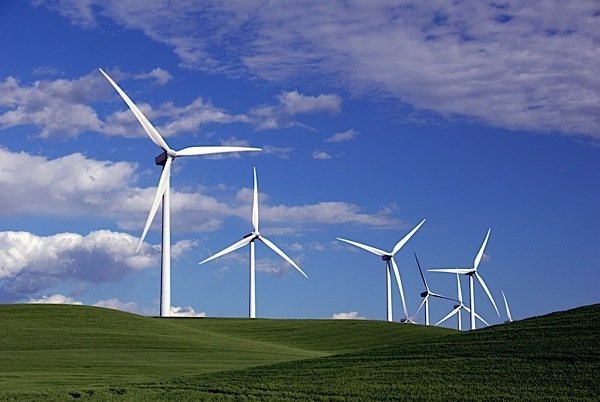Other economies have made clean-energy technologies and services a trade priority, but Canada has clung to the notion that only carbon-based fuels give us the competitive advantage we want. Because Canada has been “largely looking the other way” as the “clean energy revolution” plays out, we risk missing out on trade and growth opportunities that other countries will benefit from. There is also the real risk that as other countries reduce their dependence of fossil fuels and switch to clean energy, Canada’s markets for oil and gas could erode. This is the warning of a report from Clean Energy Canada, released on the eve of the United Nations Climate Summit in New York. As if to illustrate the point, the prime minister of Canada will not be attending.
It is not all gloom for Canada, however. The report notes that Canada moved up from twelfth place to “a respectable seventh place” in the 2013 Who’s Winning the Clean Energy Race? survey published by Pew Charitable Trusts and Bloomberg. Canada was also the second-fastest growing clean energy market in the G20 in 2013, with an investment of $6.4 billion. Investment in wind energy grew more than 40 per cent, while solar energy investment grew almost 50 per cent over 2012.
That $6.4 billion investment is dwarfed by what the Chinese, Americans and Japanese spent, however—$55 billion, $36 billion and $30 billion respectively.
More than half of the total increase in renewable energy capacity in Canada since 2000 has come from new wind turbines, the report says.
Though carbon-based fuels will remain an important part of our energy system for decades to come, for the first time in more than a century, multiple signs suggest that their dominance is beginning to wane . . . Last year, investors poured $207 billion into clean energy deployment around the world. They’re following the opportunities unlocked by governments that seek to meaningfully address climate disruption, retain competitiveness, and create opportunities.
Clean Energy Canada
The opportunity is there for Canada to innovate in the field of renewables. The Clean Energy Canada report, titled Tracking the Energy Revolution, notes that economic factors are favourable for Canada. Clean energy equipment costs have fallen, investor interest is strong, and global policy is driving the switch to clean energy sources. The cost of solar power has fallen 83 per cent in the last five years, the report claims, and that is part of what’s driving the “revolution.”
Big business is also behind the energy revolution. The report states that 60 per cent of Fortune 100 companies have renewable energy and/or greenhouse emissions reduction goals. Google has spent more than $1 billion to date on renewable energy projects and now relies on renewable energy for 34 per cent of its data centres. Walmart has set 2020 as the year its energy becomes 100 per cent renewable, and IKEA has set a similar goal.
But Canada needs to get more involved. The country does not belong, for example, to the International Renewable Energy Agency, a body that includes 131 countries. The report also urges that Canada “play a constructive role” in the upcoming Paris 2015 climate talks. Unless Canada shows “far more progress” towards its current climate targets, it will have little credibility and less influence at the Paris talks.



































